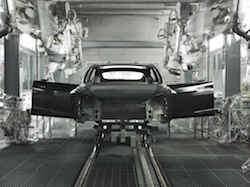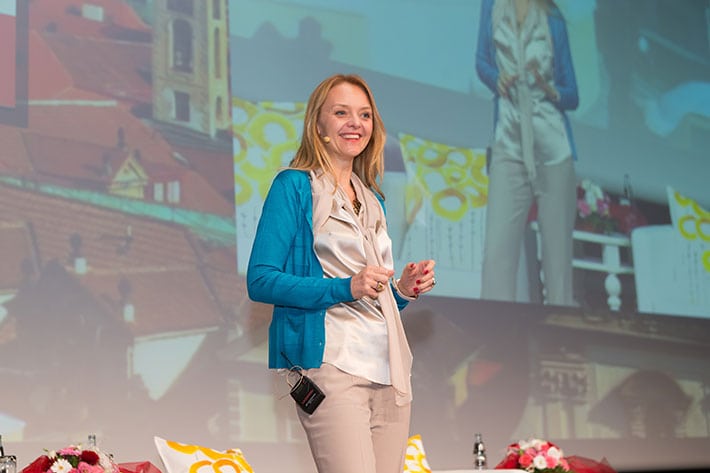The Robot Revolution
Share

With the shock of Brexit threatening job stability and redundancies in the UK, it is easy to overlook how production is evolving to incorporate more machines, programming and robots, which will, in turn, have a long-term, negative impact on employment. A ‘robot revolution’, expected to arrive in the next 20 years, will change the way in which the international economy operates, decreasing business costs and increasing social inequality, as machines and equipment handle everything from manual cleaning jobs to caring for the aged. But if technologies are able to do work traditionally done by humans, are employees going to become surplus to requirements?
With experts declaring that when a computer is in charge of a car, traffic accidents could be dramatically reduced, potentially saving thousands of lives, it’s time to listen. What will people do when software can drive cars, replace factory workers and do office jobs, diminishing the need for human labour? A future including robots should surely make jobs easier, more flexible and work in employees’ favour, but top computer scientists in the US predict that the growth of AI could replace workers entirely, dislocating economies, instead of merely unlocking productivity gains. They painted an unnerving picture at the American Association for the Advancement of Science meeting of what the future might hold as machines become increasingly clever, influential and dominant.
 Prof Vardi envisages a ‘life of leisure’ could become standard in the not-so-distant future, but he stresses that work is crucial to human well-being highlighting the major ethical and social issues that will most certainly arise because of the increase in AI usage. Bart Selman, professor of computer science at Cornell University, helped write an open letter by the Future of Life Institute in Cambridge, Massachusetts, advising policymakers to recognise the subsequent dangers of AI. He listed self-driving cars and trucks, autonomous drones for surveillance and fully automatic trading systems, along with house robots and other kinds of ‘intelligence assistance’ which make decisions on behalf of humans as potential realities. This may all sound somewhat whimsical, but it would be very risky to ignore the likely effects of automation on traditional occupations and professional life.
Prof Vardi envisages a ‘life of leisure’ could become standard in the not-so-distant future, but he stresses that work is crucial to human well-being highlighting the major ethical and social issues that will most certainly arise because of the increase in AI usage. Bart Selman, professor of computer science at Cornell University, helped write an open letter by the Future of Life Institute in Cambridge, Massachusetts, advising policymakers to recognise the subsequent dangers of AI. He listed self-driving cars and trucks, autonomous drones for surveillance and fully automatic trading systems, along with house robots and other kinds of ‘intelligence assistance’ which make decisions on behalf of humans as potential realities. This may all sound somewhat whimsical, but it would be very risky to ignore the likely effects of automation on traditional occupations and professional life.
“In Japan, robots are at present working in manufacturing sectors unsupervised 24 hours a day, for up to 30 days without a break.”
The revolutionary idea that machines will eradicate the need for human employment is no longer a thing of sci-fi dreaming and the impact of modern technology is already being felt throughout the economy and across sectors. Despite sounding barely out of research labs, AI has been in use for some time with digital personal assistants like Siri, Google Now and Cortona already familiar names. In 2015, in excess of $1bn was spent on AI research, and experts agree that the rapid developments may threaten jobs and expose a range of legal, regulatory, and ethical issues. We have already seen an increase in operators being replaced by automated systems and a rise in AI startups like Google-owned DeepMind, aiming to ‘solve intelligence’ and Rainbird, a platform that allows businesses to build systems with human-like decision making abilities.
 In Japan, robots are at present working in manufacturing sectors unsupervised 24 hours a day, for up to 30 days without a break. As AI continues to develop, meeting and later surpassing the abilities of individuals, important questions will arise around the possibilities versus the problems associated with the technology. These developments present a real test for businesses, policy-makers and society as a whole. Work is still an important aspect of human wellbeing and as idealist as it sounds what would we do without active employment?
In Japan, robots are at present working in manufacturing sectors unsupervised 24 hours a day, for up to 30 days without a break. As AI continues to develop, meeting and later surpassing the abilities of individuals, important questions will arise around the possibilities versus the problems associated with the technology. These developments present a real test for businesses, policy-makers and society as a whole. Work is still an important aspect of human wellbeing and as idealist as it sounds what would we do without active employment?
Market leaders and policymakers may dismiss these concerns, and employee salaries, staff incentives and legal regulations could assign work for everyone, or we can learn from what has happened in the past – that huge changes in society have huge impacts on society- and adjust accordingly. Be prepared. The robots are coming. Sidebar: AI became a scientific field almost 60 years ago but only burst into the mainstream through science fiction motion pictures and literature. In James Cameron’s film ‘The Terminator’, machines ruled the world. However, instead of striving to destroy people, drones could soon become an integral part of everyday life. Robots can do jobs that have previously been done by humans – such as security, courier deliveries and room service in hotels.
According to the Massachusetts Institute of Technology Review, eight US hotels are presently using a room service robot to deliver snacks, toothpastes and letters to guests. Meet Betty: She is the ideal employee. She is on time, diligent and always looking to acquire new skills. Britain’s first robotic office manager can be found in the Transport Systems Catapult, an innovation hub in Milton Keynes, which already has expertise in driverless vehicle technology. Betty will operate for two months without expert involvement, while using pioneering AI techniques and her duties will include patrolling the offices, calculating how many staff members are in the office outside working hours and monitoring the working environment. Her inventors at Birmingham University anticipate that the experiment will demonstrate that robots can learn in their surroundings.

























